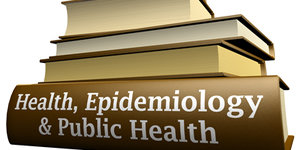
Epidemiology 2020

Theme: A Spectrum of Opportunities in the field of Epidemiology and Public Health
Have you heard about the Webinar on Epidemiology and Public Health which is going to be held in Madrid, Spain on November 24, 2020? The theme of this webinar is “A Spectrum of Opportunities in the field of Epidemiology and Public Health”. This Epidemiology 2020 conference gathers renowned Eminent Scientists/Research Professors, Junior/Senior research fellows, Students, Epidemiologists, Members of different Epidemiology Societies & Association, Medical & Pharmacy Companies and Manufacture medical devices & companies in the field of Epidemiology under a single roof where networking and global partnering happens for the acceleration of future research.
Digital advertising requires a complex calculus of audiences, channels, creative messaging, and timing. It also requires an understanding of audience behaviors, motivations, and influences that drive decisions. Through our Epidemiology & Public Health conference, we bring mastery of paid, earned, shared, and owned marketing models to remain your brand top of mind.
The size and sort of our advertising options, including banners, sponsored emails, article alerts and newsletters, provide clients with absolutely the best customized marketing opportunities in science and medicine as well as in technology too. We know how digital advertising and SEO complement each other and leverage that knowledge to develop the foremost effective strategy. The advertising platform we provide you is the best chance of showcasing your products/services, and branding your company.
If you are looking for a global exposure for your products and services, this is the right place for you. We maintain high quality and ethical standards in organizing conferences, which makes us unique and better than the rest.
Our accomplished speakers are from direct major research programs, spend millions on supplies on equipment and recommend patient therapies. If you sell research materials, pharmaceuticals, antibodies, clinical reagents, chemicals, instruments or you are looking to recruit that next investigator, here is your opportunity to advertise in the website that can connect you to leading experts and science specialists across the Globe.
Benefits for advertising:
Join with us today to advertise your business product and can be benefited with increased growth in sales of your product, expansion of the market, fights competition, enhances good-will, more employment opportunities as well as higher standard of living!
In case you have any queries regarding advertising opportunities in the conference website, Please contact our conference manager by email at: epidemiology@annualmeetings.net
You can also connect us via WhatsApp: + 44 1641 270001
Meetings International is announcing Young Scientist Awards through Webinar on Epidemiology & Public Health (Epidemiology 2020) which is scheduled at Madrid, Spain during November 24, 2020. This Epidemiology webinar focuses on “A Spectrum of Opportunities in the field of Epidemiology and Public Health”.
Epidemiology 2020 and upcoming webinars will recognise participants who have significantly added value to the scientific community of public health and provide them outstanding Young Scientist Awards. The Young Scientist Award will provide a strong professional development opportunity for young researches by meeting experts to exchange and share their experiences at our international conferences.
Epidemiology 2020 focuses mainly on Epidemiology and Health Care, Environmental Epidemiology, Genetic Epidemiology, Cancer Epidemiology, Nutritional Epidemiology, Molecular Epidemiology, Cardiovascular Epidemiology, Psychiatric Epidemiology, Scientific Epidemiology, Social Epidemiology. Epidemiology conference operating committee is providing a platform for all the budding young researchers, young investigators, post-graduate/Master students, PhD. students and trainees to showcase their research and innovation.
Eligibility:
Young Scientists, faculty members, post-doctoral fellows, PhD scholars and bright Final Year MSc and M.Phil. Candidates. Persons from Scientific Industry can also participate.
Benefits:
The Young Scientist Feature is a platform to promote young researchers in their respective area by giving them a chance to present their achievements and future perspectives.
- Acknowledgement as YRF Awardee
- Promotion on the conference website, Young Researcher Awards and certificates
- Link on the conference website
- Recognition on Meetings Int. Award Page
- Chances to coordinate with partners around the world
- Research work can be published in the relevant journal without any publication fee
Criteria:
- All presented abstracts will automatically be considered for the Award.
- All the presentation will be evaluated in the conference venue
- All the awards will be selected by the judges of the award category
- The winners of the Young Scientist Award will receive award certificate.
- The awards will be assessed as far as plan and format, intelligence, argumentation and approach, familiarity with past work, engaging quality, message and primary concerns, parity of content visuals, and by and large impression.
Guidelines:
- All submissions must be in English.
- The topic must fit into scientific sessions of the conference
- Each individual participant is allowed to submit maximum 2 papers
- Abstract must be submitted online as per the given abstract template
- Abstracts must be written in Times New Roman and font size will be 12
- Abstract must contain title, name, affiliation, country, speakers biography, recent photograph, image and reference
Conditions of Acceptance:
To receive the award, the awardee must submit the presentation for which the award is given, for publication at the website, along with author permission. Failure to submit the PPT, and permission within the designated timeframe will result in forfeiture of award.
Award Announcements:
Official announcement of the recipients will occur after the completion of Epidemiology Conference.
Session 1: Epidemiology and Health Care
Epidemiology is an information science. Through a variety of approaches, epidemiology generates information for decision making by health professionals working at all levels of the health care system. Public health research draws from a number of academic disciplines, including anthropology, history, economics, sociology and political science, as well as epidemiology and statistics. Yet, there continues to be tension between social and medical research disciplines, particularly in conceptualising health as a collectively owned right, in comparison with diseases and illnesses, which are individually measured and treated.
Related Societies:
International Society for Environmental Epidemiology | American College of Epidemiology | American Board of Internal Medicine | American Board of Medical Genetics | American Board of Emergency Medicine | Italian Association of Epidemiology | Australasian Epidemiological Association | Association Mexicana de Epidemiology | German Society for Epidemiology | Association of Chinese Epidemiology
Epidemiology Conference | Nutritional epidemiology Conferences | Epidemiology Congress | Public Health Conferences | Epidemiology Events | Epidemiology Meetings
Session 2: Environmental Epidemiology
Environmental epidemiology is a branch of epidemiology that is related to determining how environmental risks affect human health. This area tries to understand how different external risk factors can prevent or prevent disease, illness, injury, developmental abnormalities or death.
Related Societies:
International Society for Environmental Epidemiology | American College of Epidemiology | American Board of Internal Medicine | American Board of Medical Genetics | American Board of Emergency Medicine | Italian Association of Epidemiology | Australasian Epidemiological Association | Association Mexicana de Epidemiology | German Society for Epidemiology | Association of Chinese Epidemiology
Epidemiology Conference | Nutritional epidemiology Conferences | Epidemiology Congress | Public Health Conferences | Epidemiology Events | Epidemiology Meetings
Session 3: Genetic Epidemiology
Genetic epidemiology is concerned with understanding heritable aspects of disease risk, individual susceptibility to disease, and ultimately with contributing to a comprehensive molecular understanding of pathogenesis. The massive investment and expansion of human genetics, if it is to return value for the common good, must be integrated into public health functions. The human genome epidemiology network has been established to promote the use of genetic knowledge in terms of genetic tests and services for disease prevention and health promotion.
Related Societies:
International Society for Environmental Epidemiology | American College of Epidemiology | American Board of Internal Medicine | American Board of Medical Genetics | American Board of Emergency Medicine | Italian Association of Epidemiology | Australasian Epidemiological Association | Association Mexicana de Epidemiology | German Society for Epidemiology | Association of Chinese Epidemiology
Epidemiology Conference | Nutritional epidemiology Conferences | Epidemiology Congress | Public Health Conferences | Epidemiology Events | Epidemiology Meetings
Session 4: Cancer Epidemiology
Cancer Epidemiology represents the investigation of elements in responsible of the inception, metastasis and guess of different sorts of malignant growth. Epidemiological research discoveries on disease can encourage the detailing of appropriate helpful treatment techniques and preventive medicines for cancer. It is the exposure to specific chemical and physical agents is potentially one of the most important ways in which analytical epidemiologic methods can contribute to the knowledge of cancer etiology.
Related Societies:
International Society for Environmental Epidemiology | American College of Epidemiology | American Board of Internal Medicine | American Board of Medical Genetics | American Board of Emergency Medicine | Italian Association of Epidemiology | Australasian Epidemiological Association | Association Mexicana de Epidemiology | German Society for Epidemiology | Association of Chinese Epidemiology
Epidemiology Conference | Nutritional epidemiology Conferences | Epidemiology Congress | Public Health Conferences | Epidemiology Events | Epidemiology Meetings
Session 5: Nutritional Epidemiology
Nutritional epidemiology is one of the younger disciplines in epidemiology. This may be partially due to the difficulties in measuring diet as an exposure. Diet and physical activity are arguably the most difficult exposures to assess in observational research and are plagued by considerable measurement error. Hence we are all exposed, and the variation may be more subtle than with other, more distinct exposures such as smoking or use of hormone replacement therapy.
Related Societies:
International Society for Environmental Epidemiology | American College of Epidemiology | American Board of Internal Medicine | American Board of Medical Genetics | American Board of Emergency Medicine | Italian Association of Epidemiology | Australasian Epidemiological Association | Association Mexicana de Epidemiology | German Society for Epidemiology | Association of Chinese Epidemiology
Epidemiology Conference | Nutritional epidemiology Conferences | Epidemiology Congress | Public Health Conferences | Epidemiology Events | Epidemiology Meetings
Session 6: Molecular Epidemiology
Molecular epidemiology is a multidisciplinary field combining molecular biology methods and epidemiological design embracing also such fields as cell biology, biochemistry and statistics. It aims at developing molecular markers to aid in revealing exposures, setting diagnosis, detection of early disease, follow-up of treatment and individual susceptibility of diseases. In molecular epidemiology, research is done in many cases among healthy people with one of the main aims being to reveal individual risk, and studies are often genetic by nature. Consequently, there are important ethical aspects to consider on one hand to protect people, and on the other hand, to increase understanding of the positive implications.
Related Societies:
International Society for Environmental Epidemiology | American College of Epidemiology | American Board of Internal Medicine | American Board of Medical Genetics | American Board of Emergency Medicine | Italian Association of Epidemiology | Australasian Epidemiological Association | Association Mexicana de Epidemiology | German Society for Epidemiology | Association of Chinese Epidemiology
Epidemiology Conference | Nutritional epidemiology Conferences | Epidemiology Congress | Public Health Conferences | Epidemiology Events | Epidemiology Meetings
Session 7: Cardiovascular Epidemiology
Cardiovascular disease (CVD) is a major cause of morbidity and mortality worldwide, with the lifetime risk exceeding 60%. Major advances in cardiovascular epidemiology over the last 4 decades have improved our understanding of the pathogenesis of CVD, with the identification and treatment of several major risk factors. Thus, cardiovascular epidemiology is confronted by a dualism: unprecedented opportunities for new research directions amid a growing uncertainty about its potential value and a pressure to do more and be more accountable.
Related Societies:
International Society for Environmental Epidemiology | American College of Epidemiology | American Board of Internal Medicine | American Board of Medical Genetics | American Board of Emergency Medicine | Italian Association of Epidemiology | Australasian Epidemiological Association | Association Mexicana de Epidemiology | German Society for Epidemiology | Association of Chinese Epidemiology
Epidemiology Conference | Nutritional epidemiology Conferences | Epidemiology Congress | Public Health Conferences | Epidemiology Events | Epidemiology Meetings
Session 8: Psychiatric Epidemiology
The Psychiatric epidemiology has done little to illuminate either the etiology or the environmental factors that create mental illnesses. Because of the limits of its knowledge base, the policies stemming from epidemiological studies have served to justify the predominant ideological and administrative interests of psychiatrists, researchers, and policymakers. The lack of an adequate system of classification of mental illnesses has been the primary factor limiting the development of Psychiatric epidemiology and, consequently, its usefulness for developing effective public policy toward mental illnesses.
Related Societies:
International Society for Environmental Epidemiology | American College of Epidemiology | American Board of Internal Medicine | American Board of Medical Genetics | American Board of Emergency Medicine | Italian Association of Epidemiology | Australasian Epidemiological Association | Association Mexicana de Epidemiology | German Society for Epidemiology | Association of Chinese Epidemiology
Epidemiology Conference | Nutritional epidemiology Conferences | Epidemiology Congress | Public Health Conferences | Epidemiology Events | Epidemiology Meetings
Session 9: Scientific Epidemiology
Epidemiology has provided a scientific foundation for public health and disease prevention. Epidemiology has contributed to major scientific discoveries such as the relationship between cigarette smoking and common diseases. Yet, the observational nature of much of epidemiologic research has attracted criticism including excess expense, repudiated findings, that offer small incremental, knowledge, inability to innovate at reasonable cost, and failure to identify research questions with the greatest merit.
Related Societies:
International Society for Environmental Epidemiology | American College of Epidemiology | American Board of Internal Medicine | American Board of Medical Genetics | American Board of Emergency Medicine | Italian Association of Epidemiology | Australasian Epidemiological Association | Association Mexicana de Epidemiology | German Society for Epidemiology | Association of Chinese Epidemiology
Epidemiology Conference | Nutritional epidemiology Conferences | Epidemiology Congress | Public Health Conferences | Epidemiology Events | Epidemiology Meetings
Session 10: Social Epidemiology
The recent research shows that cumulative neighbourhood socioeconomic disadvantage was associated with increase in the odds of developing diabetes at middle age, with a dose-response association; those exposed to neighbourhood socioeconomic disadvantage for a shorter duration showed a less increased risk. The association remained after controlling for individual socioeconomic status. The results show that the effect of neighbourhood disadvantage becomes visible in childhood (poor diet), adolescence (low physical activity, increased prevalence of daily smoking) and early adulthood.
Related Societies:
International Society for Environmental Epidemiology | American College of Epidemiology | American Board of Internal Medicine | American Board of Medical Genetics | American Board of Emergency Medicine | Italian Association of Epidemiology | Australasian Epidemiological Association | Association Mexicana de Epidemiology | German Society for Epidemiology | Association of Chinese Epidemiology
Epidemiology Conference | Nutritional epidemiology Conferences | Epidemiology Congress | Public Health Conferences | Epidemiology Events | Epidemiology Meetings
Market Research on Epidemiology:
Epidemiological reconnaissance is conducted all over to examine the etiological components of disease and causes for spreading and its preventative measures. This Epidemiology conference gives the international platform for recent research on the uprising and re-rising diseases, communicable diseases, Non-communicable diseases. This conference has the extent to be the source of the medical specialty variables like origin, spread and up to date status of different diseases and disorders causing deaths in several nations.
The worldwide Epidemiology advertise has been esteemed at USD 13.45 Billion out of 2016 and is required to develop at a CAGR of 10.2% to reach to USD 23.88 Billion by 2022. The development of the general market for epidemiology can be ascribed to the developing interest for the customized drug, developing ventures, allows, and supports by the administration; ascend in look into exercises in the field of Epidemiology and public healthcare; expanding a number of new businesses, and expanding utilization of genomic sequencing in the diagnostics. In the coming years, North America is relied upon to represent the biggest offer of the worldwide market. Base year considered for the report is 2016 and the estimated time frame incorporates 2017– 2022. he worldwide Epidemiology showcase was assessed around USD 10.06 billion in the 2012 and is relied upon to reach roughly USD 27.24 billion before the finish of 2022 while enrolling itself at a compound yearly development rate (CAGR) of 10.48% over the estimated time frame. Genomics is a division of science that incorporates the investigation of qualities and their works and actualizes bioinformatics, recombinant DNA, and DNA sequencing techniques to examine grouping and force together with the capacity and structure of genomes. It includes practical genomics, relative genomics, Pharmacogenomics, basic genomics, and epigenetics. Genomics has rendered various applications in a few fields like biotechnology, human studies, genomic solution, and different sciences.
The worldwide genomics advertise has encountered an ascent in industry potential attributable to mechanical developments as new informatics gets to that amalgamate different types of information with genomic information in ailment inquire about which allowing specialists to comprehend the hereditary bases of an assortment of medication reaction and infections all the more successfully. Also, an ascent in half or full pay for this industry by the legislature of specific nations, developing the event of lethal sicknesses like diabetes, growth, and others give the ascent in their necessity in the worldwide advancement. Heightening gets to for novel genomics instruments and procedures, ascertain their advantage to the patient and focus on ventures to execute it and rising genome profiling innovations are foreseen to grow the genomics business at the fast rate. The finely-dispersed system of restorative research facilities is adding to quicker and simple acknowledgment of genomics methods and items.
Scope and Importance of Epidemiology:
An important epidemiologic premise is that individuals with the same disease entity have similar causes of the disease, and show similar natural history of the disease and similar responses to treatment or intervention. Under this important assumption, observations in a population study which contains a large number of individuals with a certain disease can be generalized to patients with the same disease in a different set of people in the same background population or in people in a different background population. In this context, traditional epidemiology has contributed to not only the successful identification of major etiologic factors even without molecular sub-classification but also the development of prevention strategies, such as smoking cessation programs.
Another aspect of major contributions of epidemiologic studies to broader biomedical and health sciences is provision of study subjects and materials. Epidemiologic research typically requires intensive efforts to carefully select subjects from a larger population, compile information on environment, lifestyle, behaviour, health and diseases, collect biospecimens, and build a large database infrastructure. Such epidemiologic resources can become an enormous asset for transdisciplinary research, and provide a large sample of disease patients, which is more representative of the general population than a typical hospital-based convenience sample.
Accordingly, along with advances in computing, bioinformatics, genomic medicine and biomedical sciences, modern epidemiology has broadened to integrate these disciplines. This advancement has been opening enormous opportunities, including the evolution of molecular pathological epidemiology.
List of Universities having Epidemiology and Public Health Departments:
McMaster University, Canada
Karolinska Institute, Sweden
Cardiff University, UK
Lund University, Sweden
Columbia University, New York
University of Pennsylvania
Linkoping University, Sweden
University of Gothenburg, Sweden
George Washington University, USA
Institute for Health Metrics and Evaluation, WA
Johns Hopkins University, USA
University of Oslo, Norway
University of Tampere, Finland
University of Iceland, Iceland
Stockholm University, Sweden
List of Companies working on Epidemiology and Public Health:
The Climate Corporation, US
IBM Watson Health, USA
UC Davis Health System, California
General Dynamics Information Technology, USA
Health Services Advisory Group, Virginia
Related Epidemiology Associations Worldwide:
American College of Epidemiology (ACE)
American Public Health Association (APHA)
American Society for Public Administration (ASPA)
Association Medical Argentina (ADMISAL)
Association Mexicana de Epidemiology (AMEPID)
Association of Chinese Epidemiology
Australasian Epidemiological Association (AEA)
Canadian Society for Epidemiology and Biostatistics (CSEB)
Danish Epidemiological Society (DES)
Egyptian Society of Epidemiology (ESE)
Finnish Epidemiological Society (FES)
German Society for Epidemiology (DGEpi)
International Society for Environmental Epidemiology (ISEE)
International Society for Pharmacoepidemiology (ISPE)
Italian Association of Epidemiology (AIE)
Japan Epidemiological Association (JEA)
Netherlands Epidemiological Society (VvE)
Portuguese Association of Epidemiology (APE)
Romanian Society of Epidemiology (SRE)
Saudi Epidemiological Association (SEA)
References:
Meetings International has taken an initiative to felicitate attendees with awards to recognise, celebrate and encourage achievement in its various conferences and events. These awards have different committees, nominating procedures and submission deadlines. We salute and acknowledge attainment within an industry that is continuously evolving and re-drawing the boundaries of best practice. These awards represent the pinnacle of professional achievement for event professionals. They recognize Best Eminent Presentation Award, Outstanding Oral Presentation Award, Best Organising Committee Member Award, Outstanding Future Scientist Presentation Award & Best Poster Award. We invite all enthusiastic researchers from all around the world join us for the Epidemiology 2020 conference scheduled in November 24, 2020 venue on Madrid, Spain.

Best Eminent Presentation Award:
Epidemiology 2020 will honours the Keynote Speakers who have made significant contributions to the field of Public Health but also makes a difference by his presence during the conference. Recipients of the award are considered to have advanced the field through research or service.

Outstanding Oral Presentation Award:
There will be a number of technical sessions in the conference under different themes. These awards are provided to the presentations that have been selected to be the best in the particular session. Epidemiology 2020 perceives the individuals who have made significant and imaginative walks in education system. This award will be provided for the most outstanding presentation of the entire conference.

Best Organizing Committee Member Award:
Epidemiology 2020 will honour the individual who has demonstrated exemplary support and guidance throughout the conference.

Outstanding Future Researcher Presentation Award:
The Future Researcher Presentation Award will be given to the most outstanding presentation presented by a participant who has registered under the student category. Undergraduates, Master students, and Ph.D. students will be considered under this category. This award recognizes individuals in the early stages of their careers who have already made outstanding research, teaching, and/or service contributions to the field of information systems.

Best Poster Award:
There will be a poster session at the Epidemiology 2020 and this award is dedicated to the poster presenters in the conference. The best poster presentation will be selected among all the researchers in the session. Recipients of the award are considered to be the Best Poster Presenter of the conference.
The awards given for our Epidemiology conferences (A Spectrum of Opportunities in the field of Epidemiology and Public Health) recognise the wide range of responsibilities and dedication of Epidemiology and Public Health professionals who promote the highest standards of care across the whole health service. Epidemiology 2020 events make a huge contribution to maintaining and protecting the health and well-being of people across the globe.
Criteria:
- All presented abstracts will automatically be considered for the Award.
- All the presentation will be evaluated in the conference venue
- All the awards will be selected by the judges of the award category
- The winners will be formally announced during the closing ceremony.
- The winners of the Poster Award will receive award certificate.
- The awards will be assessed as far as plan and format, intelligence, argumentation and approach, familiarity with past work, engaging quality, message and primary concerns, parity of content visuals, and by and large impression.
Guidelines:
- All submissions must be in English.
- The topic must fit into scientific sessions of the conference
- Each individual participant is allowed to submit maximum 2 papers
- Abstract must be submitted online as per the given abstract template
- Abstracts must be written in Times New Roman and font size will be 12
- Abstract must contain title, name, affiliation, country, speakers biography, recent photograph, image and reference
- Each poster should be approximately 1x1 M long. The title, contents and the author’s information should be clearly visible from a distance of 1-2 feet.
- Epidemiology and Health Care
- Environmental Epidemiology
- Genetic Epidemiology
- Cancer Epidemiology
- Nutritional Epidemiology
- Molecular Epidemiology
- Cardiovascular Epidemiology
- Psychiatric Epidemiology
- Scientific Epidemiology
- Social Epidemiology
- Journal of Health Informatics & Management
- Journal of Infectious Diseases & Immune Therapies




















































































































